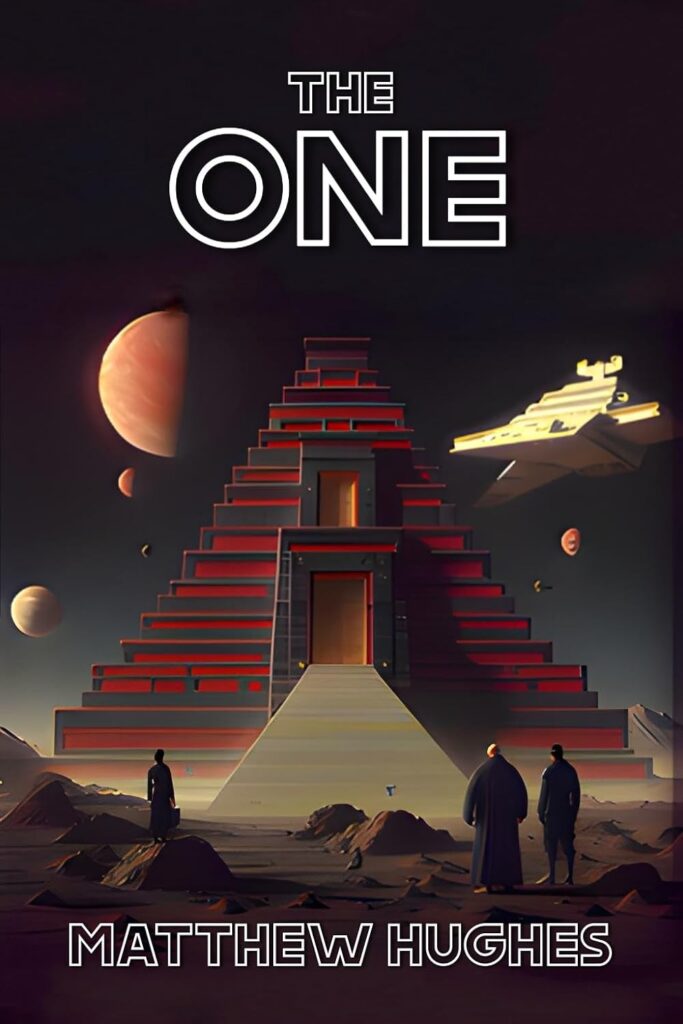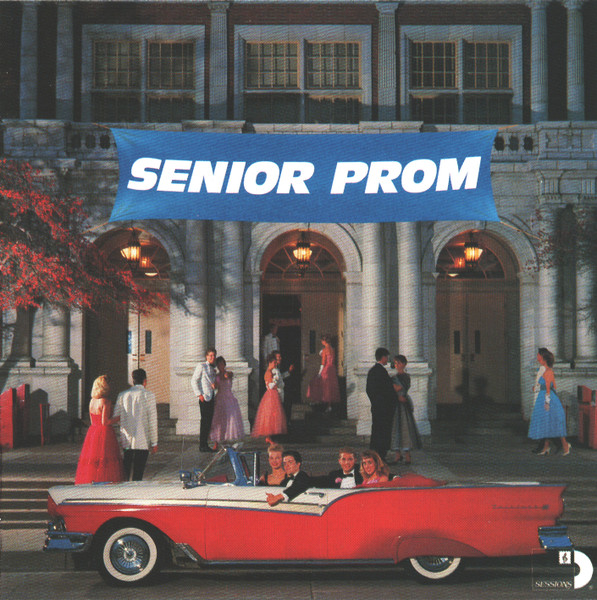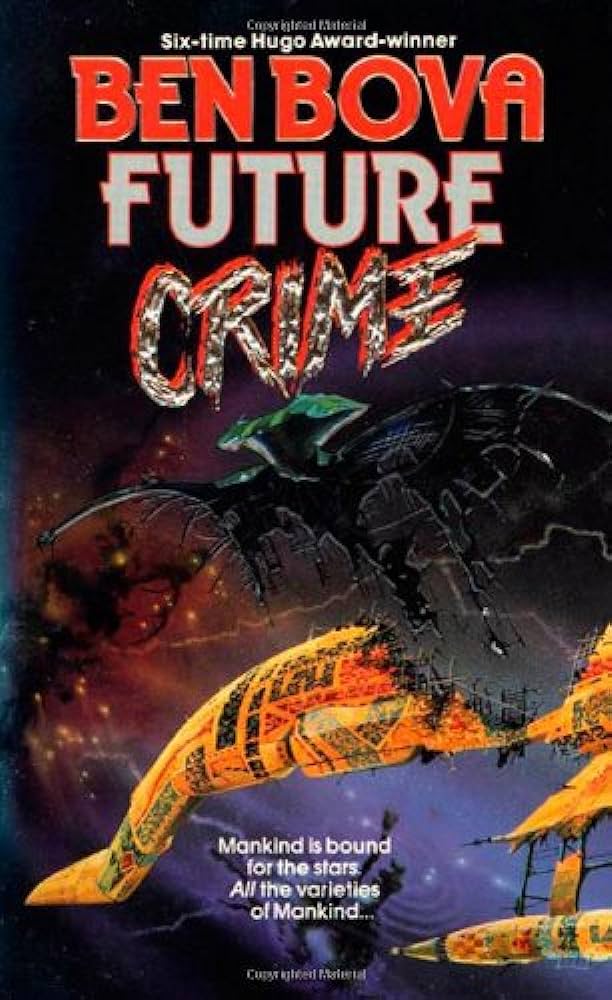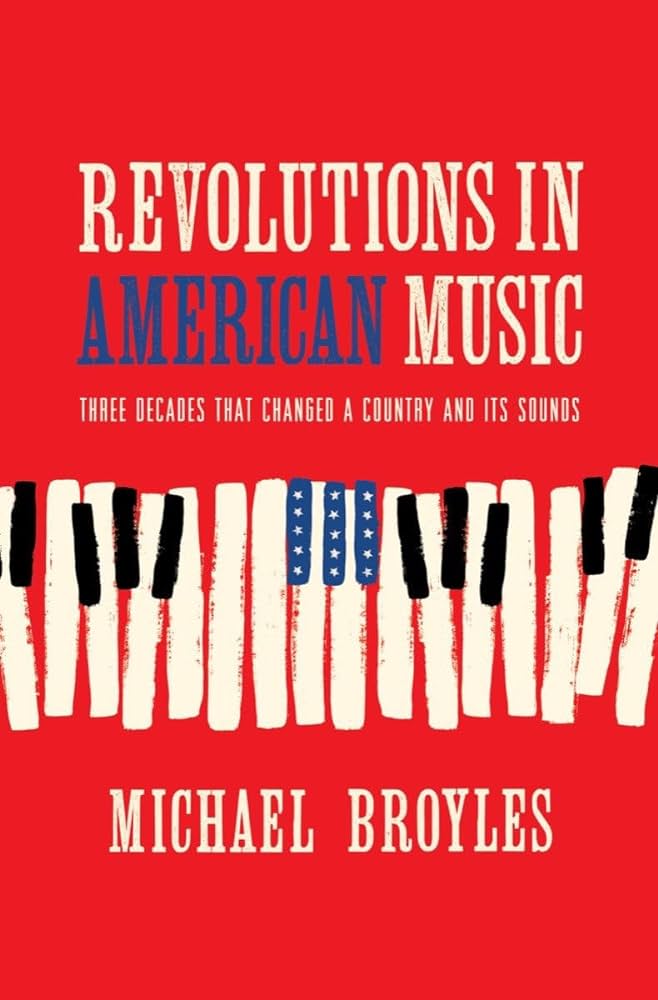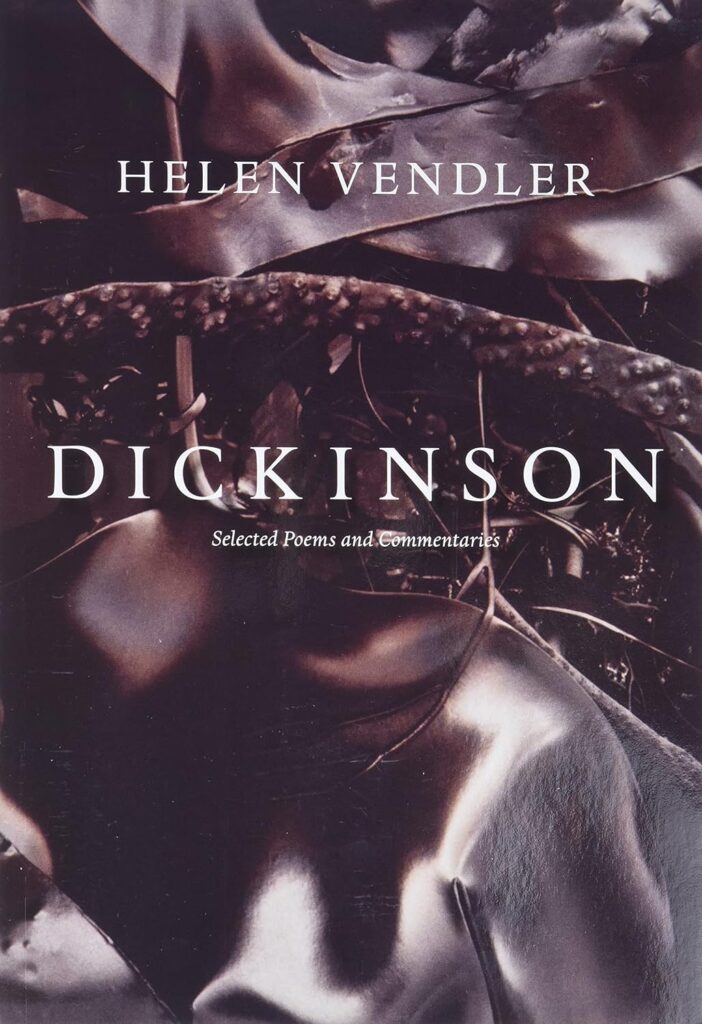“I feel not a whit sad at the fact of death, but massively sad at leaving friends behind, among who you count dearly. I have always know what my true feelings are by whatever line of poetry rises unbidden to my mind on any occasion; to my genuine happiness, this time was a line from Herbert’s ‘Evensong,’ in which God (always in Herbert, more like Jesus than Jehovah), says to the poet, ‘ Henceforth repose; your work is done.'”
The great poetry critic Helen Vendler died April 23, 2024 at the age of 93. Over the years, I’ve read several of Vendler’s books on poetry and always came away delighted and inspired by her insights and commentaries. That paragraph above comes from a letter from Vendler to her friend Roger Rosenblatt (you can read more about their friendship here) shortly before her death.
“In choosing the 150 poems for inclusion here I wanted to edit many different aspects of the poet’s work as a writer, form her first-person poem to the poems of grand abstraction, from her ecstatic verses to her unparalleled depictions of emotional numbness, from her comic anecdotes to her painful poems of aftermath. I have included many of the familiar poems, but I have wanted to makes space, too, for daring poems that have rarely been anthologized or taught in school, and so have not reached a large general audience. There are poems of varying achievement here, the lesser ones included to show the conventional or occasional Dickinson, the great ones to sustain her right to fame.” (p. 3)
To honor Helen Vendler and one of her favorite poets, Emily Dickinson, I want to urge you to check out Dickinson: Selected Poems and Commentaries (2012). Vendler shows how Dickinson’s poems work to achieve their effects. Do you have a favorite poet? GRADE: A
TABLE OF CONTENTS:
A Note on the Text — xiii
Introduction: Dickinson the writer — 1
Selected poems and commentaries:
23. In the name of the Bee –17
32. The morns are meeker than they were — 19
90. An altered look about the hills — 32
122. These are the days when birds come back — 35
124. Safe in their alabaster chambers — 38
129. Our lives are Swiss — 43
134. Did the Harebell loose her girdle — 45
138. To fight aloud, is very brave — 47
165–I have never seen “Volcanoes” — 50
181. A wounded deer leaps highest — 54
187. Through the straight pass of suffering — 57
194. Title divine, is mine — 60
204. I’ll tell you how the sun rose — 64
224: An awful tempest mashed the air — 67
232. He forgot – and I – remembered — 69
236. Some keep the Sabbath going to Church — 71
238. How many times these low feet staggered — 75
240. Bound a trouble – and lives will bear it — 78
243. That after horror – that ’twas us — 84
256– The robin’s my criterion for tune — 86
259. A clock stopped — 89
269. Wild nights – wild nights! — 93
276. Civilization – spurns – the leopard! — 95
279. Of all the souls that stand create — 98
284. The zeros taught us – phosphorus — 101
288. My first well day – since many ill — 104
291. It sifts from leaden sieves — 107
294. A weight with needles on the pounds — 110
306. A shady friend – for torrid days — 112
312. I can wade grief — 115
314. “Hope” is the thing with feathers — 118
319. Of bronze – and blaze — 121
320. There’s a certain slant of light — 126
325. There came a day – at summer’s full — 130
330. He put the belt around my life — 135
337. Of nearness to her sundered things — 138
340. I felt a funeral, in my brain — 141
341. ‘Tis so appalling – it exhilarates — 144
348. I would not paint – a picture — 148
351. She sights a bird – she chuckles — 151
355. It was not death, for I stood up — 154
359. A bird, came down he walk — 157
360. The soul has bandaged moments — 161
365. I know that he exists — 165
372. After great pain, a formal feeling comes — 168
373. This world is not conclusion — 173
383. I like to see it lap the miles — 177
401. Dare you see a soul at the “white heat”? — 180
407. One need not be a chamber – to be haunted — 184
409. The soul selects her own society — 187
420. There are two ripenings — 191
423. The first day’s night had come — 194
425. ‘Twas like a maelstrom, with a notch — 198
430. A charm invests a face — 202
439. I had been hungry, all the years — 205
444. It would have starved a gnat — 209
446. This was a poet — 212
448. I died for beauty – but was scarce — 216
450. The outer – from the inner — 219
466. I dwell in possibility — 222
479. Because I could not stop for death — 225
515. There is a pain so utter — 231
517. A still – volcano – life — 234
519. This is my letter to the world — 237
534. It feels a shame to be alive — 239
528. ‘Tis not that dying hurts us so — 243
533. I reckon – when I count at all — 246
550. I measure every grief I meet — 250
558. A visitor in Marl — 255
578. The angle of a landscape — 258
584. We dream – it is good we are dreaming — 261
588. The heart asks pleasure – first — 254
591. I heard a fly buzz – when I died — 266
615. God is a distant – stately lover — 269
620. Much madness is divinest sense — 273
633. I saw no way – the heavens were stitched — 275
647. To fill a gap — 278
664. Rehearsal to ourselves — 280
675. What soft – cherubic creatures — 283
686. It makes no difference abroad — 286
696. The tint I cannot take – is best — 289
700. The way I read a letter’s – this — 293
706. I cannot live with you — 297
708. They put us far apart — 304
729. The props assist the house — 307
740. On a columnar self — 311
347. It’s easy to invent a life — 314
760. Pain – has an element of blank — 316
764. My life had stood – a loaded gun –318
772. Essential oils – are wrung — 323
778. Four trees – upon a solitary acre — 326
782. Renunciation – is a piercing virtue — 330
788. Publication – is the auction — 333
790. Growth of man – like growth of nature — 336
796. The wind begun to rock the grass — 339
800. I never saw a moor — 343
830. The admirations – and contempts – of time — 345
836. Color – caste – denomination — 349
857. She rose to his requirement – dropt — 352
861. They say that “time assuages” — 355
867. I felt a cleaving in my mind — 357
895. Further in summer than the birds — 361
905. Split the lark – and you’ll find the music — 367
926. I stepped from plank to plank — 369
930. The poets light but lamps — 371
935. As imperceptibly as grief — 373
962. A light exists in spring — 378
983. Bee! I’m expecting you! — 382
994. He scanned it – staggered — 384
1010. Crumbling is not an instant’s act — 386
1038. Bloom – is result – to meet a flower — 389
1064. As the starved maelstrom laps the navies — 392
1096. A narrow fellow in the grass — 396
1097. Ashes denote that fire was — 400
1100. The last night that she lived — 404
1121. The sky is low – the clouds are mean — 409
1142. The murmuring of bees has ceased — 411
1150. These are the nights that beetles love — 415
1163. A spider sewed at night — 418
1218. The bone that has no marrow — 424
1243. Shall I take thee, the poet said — 427
1263. Tell all the truth but tell it slant — 431
1268. A word dropped careless on a page — 434
1274. Now I knew I lost her — 437
1279. The things we thought that we should do — 441
1279. Art thou the thing I wanted? — 446
1325. I never hear that one is dead — 449
1332. Abraham to kill him — 452
1347. Wonder is not precisely knowing — 455
1369. The rat is the concisest tenant — 458
1393. Those cattle smaller than a bee — 461
Long years apart – can make no — 465
1408. The bat is dun, with wrinkled wings — 467
1428. Lay this laurel on the one — 470
1474. The road was lit with moon and star –475
1489. A route of evanescence — 479
1511. The fascinating chill that music leaves — 481
1513. ‘Tis whiter than an Indian Pipe — 485
1539. Mine enemy is growing old — 489
1577. The Bible is an antique volume — 491
1581. Those dying then — 496
1593. He ate and drank the precious words — 498
1618. There came a wind like a bugle — 500
1668. Apparently with no surprise — 504
1715. A word made flesh is seldom — 506
1742. In winter in my room — 511
1766. The waters chased him as he fled — 515
1771. ‘Twas here my summer paused — 518
1773. My life closed twice before its close — 520
1779. To make a prairie it takes a clover and one bee — 522
Primary Sources Cited — 527
Acknowledgements — 529
Index of First Lines — 531
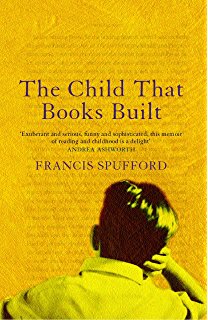 The Child That Books Built (2002) isn’t just a merry walk down memory lane. Francis Spufford was just three years old when he was joined in the world by a baby sister, Bridget, who, by a freak of nature, was terminally afflicted by cystinosis, an exceedingly rare disease resulting from her parents’ matched genetic coding.
The Child That Books Built (2002) isn’t just a merry walk down memory lane. Francis Spufford was just three years old when he was joined in the world by a baby sister, Bridget, who, by a freak of nature, was terminally afflicted by cystinosis, an exceedingly rare disease resulting from her parents’ matched genetic coding.

